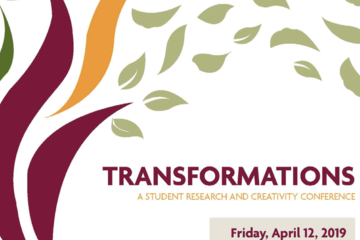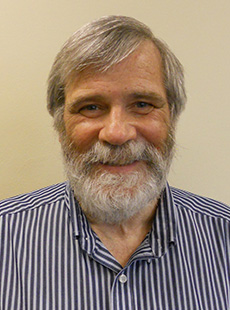
04/04/2019
Anthony Rigazio-DiGilio ’73 came to SUNY Cortland as an undergraduate because he was passionate about serving others through teaching.
After a few semesters of courses, particularly those in education psychology, he realized that he had an even greater interest in school administration.
“I became aware of a principle that has guided my whole life,” he said. “I can be a teacher or I can be an administrator and help lots of teachers teach better.”
Rigazio-DiGilio will deliver lessons from his decades of experience in educational leadership during “Transformations: A Student Research and Creativity Conference” on Friday, April 12 in Sperry Center. Transformations is SUNY Cortland’s annual day-long conference that showcases the wide array of scholarship, research and creative activities occurring on campus.
His talk, “The 3 Cs of Learning Organizations: Confidence, Competence and Cooperation,” will be held from 12:30 to 1:30 p.m. in Sperry Center, Room 204. Rigazio-DiGilio will discuss how professionals can transform their environments into dynamic learning organizations and benefit their students, clients or patients.
Rigazio-DiGilio is professor emeritus and past chair of the Educational Leadership, Policy and Instructional Technology Department at Central Connecticut State University in New Britain, Conn. He spent time as a teacher and principal before earning his Ed.D. in instructional leadership from the University of Massachusetts Amherst.
His action research in the field of teacher leadership has helped schools in Connecticut and nationwide improve school culture, teacher evaluations and teaching standards.
Action research, put simply, is a disciplined process based on the scientific method that allows a practitioner to refine their actions to gain optimum results. For example, a math teacher seeing students struggle to understand a certain concept may experiment with different methods to find one that connects.

Teaching teachers to empower themselves leads to better performance from students and also creates better relationships between teachers and administrators.
“As professionals, we have an ethical obligation to provide the highest quality of service to people,” Rigazio-DiGilio said. “You have to be aware of and be in touch with the professional research and you have to translate that into the everyday practice and everyday life of your clientele. This tool of action research comes in very handy.”
Rigazio-DiGilio hopes that his lecture will appeal to students and faculty of all academic backgrounds, especially those outside of education.
“The bottom line is ethical practice,” he said. “Maybe you’re not always working with a student or a client, but you’re working with colleagues, you’re working in an organization, you’re working in a community and you have an obligation to help improve those environments. That means working with people and keeping yourself current with what’s going on in your field and applying it in a useful, helpful way.”
Rigazio-DiGilio has helped evaluate assessment materials and processes for the National Board for Professional Teaching Standards and was lead author of the elementary teaching standards that were developed for the Connecticut State Department of Education. He led teacher education projects for the National Education Association and the Urban Network to Improve Teacher Education.
For over two decades, he served as director of the Jamaican Master’s Degree program that connected Central Connecticut students and faculty with those from Sam Sharpe Teachers College in Montego Bay, Jamaica. More than 1,000 Jamaican educators received master’s degrees through the program.
Rigazio-DiGilio was recognized as the Connecticut Association for Supervision and Curriculum Development’s outstanding educational leader in 2010 and received a distinguished service award from Central Connecticut in 2012. That same year, the West Indian Educational Foundation recognized him for outstanding community service.
He vividly recalls a moment registering for classes during his time as a student at SUNY Cortland as the turning point in his academic career.
“I walked in and said to one of the education professors, ‘I want to do what you do.’ That became a career goal I was able to fulfill in being able to move to higher ed and prepare the next generation of teachers.”
For a full Transformations schedule of events and to view the presentation booklet, visit Cortland.edu/Transformations.